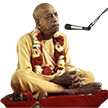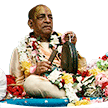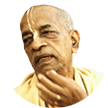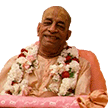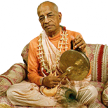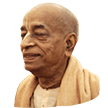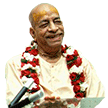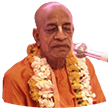Unconscious - an essential subject: Difference between revisions
Nayanranjani (talk | contribs) (Created page with "Category:Essential Subjects <!----------------------- edit below this line -----------------------> <!------------------------ begin introduction text below ------------...") |
(Vanibot #0041: Moves Choose Another box to the end) |
||
| Line 2: | Line 2: | ||
<!----------------------- edit below this line -----------------------> | <!----------------------- edit below this line -----------------------> | ||
<!------------------------ begin introduction text below ------------------------> | <!------------------------ begin introduction text below ------------------------> | ||
Being unconscious means being rather insentient or in a temporary comatose like state. Our consciousness guides us in our day-to-day lives, and it is because of our consciousness that we are superior to other living beings (that have low consciousness). Being unconscious in this world itself is rather horrible, but being spiritually unconscious is disastrous. When one lacks spiritual consciousness, he is totally engrossed in material sense enjoyment and loves the notion of lording over the material nature; activities that are very averse to one's spiritual development. | |||
Srila Prabhupada's books, lectures, conversations and letters offer a comprehensive presentation of this essential subject as seen in the Vaniquotes '''[[Vaniquotes:Category:Unconscious|Unconscious]]''' category. An introduction from his books is given below in the following | Srila Prabhupada's books, lectures, conversations and letters offer a comprehensive presentation of this essential subject as seen in the Vaniquotes '''[[Vaniquotes:Category:Unconscious|Unconscious]]''' category. An introduction from his books is given below in the following 8 quotes. | ||
<!-------- end introduction text and don't touch next three lines ---------> | <!-------- end introduction text and don't touch next three lines ---------> | ||
== Quotes from Srila Prabhupada's books == | == Quotes from Srila Prabhupada's books == | ||
<!----------------- edit quote boxes below this line -----------------> | <!----------------- edit quote boxes below this line -----------------> | ||
{{VaniQuotebox| | {{VaniQuotebox|While chanting the Hare Krsna maha-mantra, Sri Caitanya Mahaprabhu sometimes fainted and remained unconscious for many hours|One should not only understand the philosophy of the Caitanya cult but also implement it practically in one's life. While chanting the Hare Kṛṣṇa mahā-mantra, Śrī Caitanya Mahāprabhu sometimes fainted and remained unconscious for many hours. '''(Caitanya-caritāmṛta, Ādi-līlā 9.51)'''}} | ||
{{VaniQuotebox| | {{VaniQuotebox|When the body is attacked by the visnu-jvara, the fiery condition becomes so acute that sometimes one remains in a coma. This means that the body is in such severe pain that one becomes unconscious and cannot feel the miseries taking place within the body|When the body is attacked by the viṣṇu-jvāra, the fiery condition becomes so acute that sometimes one remains in a coma. This means that the body is in such severe pain that one becomes unconscious and cannot feel the miseries taking place within the body. Indeed, the living entity becomes so helpless at the time of death that, although unwilling, he is forced to give up the body and enter another. '''(Śrīmad-Bhāgavatam 4.28.12)'''}} | ||
{{VaniQuotebox| | {{VaniQuotebox|Vital force always remains awake even when the body and the senses become fatigued and do no work. Even in the state of unconsciousness, when we sleep|The snake is the vital force of the living being. This vital force always remains awake even when the body and the senses become fatigued and do no work. Even in the state of unconsciousness, when we sleep, the snake, or the life-force, remains intact and awake. Consequently we dream when we sleep. When the living entity gives up this material body, the vital force still remains intact and is carried to another material body. '''(Śrīmad-Bhāgavatam 4.25.35)'''}} | ||
{{VaniQuotebox| | {{VaniQuotebox|Unconsciousness is artificial; by induced extraneous help it remains for a limited period, but when the intoxication of the drug is finished or when one is awake, the consciousness again acts earnestly|Consciousness cannot be silent, even for a moment. When the body does not act, the consciousness acts in the form of dreams. Unconsciousness is artificial; by induced extraneous help it remains for a limited period, but when the intoxication of the drug is finished or when one is awake, the consciousness again acts earnestly. '''(Śrīmad-Bhāgavatam 3.6.36)'''}} | ||
{{VaniQuotebox| | {{VaniQuotebox|The transcendental name of Krsna, even though uttered unconsciously or by force of circumstances, can help one obtain freedom from the hurdle of birth and death|The name of Kṛṣṇa is feared even by fear personified. This indicates that the name of Kṛṣṇa is nondifferent from Kṛṣṇa. Therefore, the name of Kṛṣṇa is as powerful as Lord Kṛṣṇa Himself. There is no difference at all. Anyone, therefore, can take advantage of the holy names of Lord Śrī Kṛṣṇa even in the midst of greatest dangers. The transcendental name of Kṛṣṇa, even though uttered unconsciously or by force of circumstances, can help one obtain freedom from the hurdle of birth and death. '''(Śrīmad-Bhāgavatam 1.1.14)'''}} | ||
{{VaniQuotebox| | {{VaniQuotebox|Those who cook food not for offering to Visnu, but only for satisfying their senses, have to undergo punishments for all the sins they have committed consciously or unconsciously, while discharging prescribed duties|Those who cook food not for offering to Viṣṇu, but only for satisfying their senses, have to undergo punishments for all the sins they have committed consciously or unconsciously, while discharging prescribed duties. For this reason, the worship of Viṣṇu still goes on in the households of the followers of sanātana-dharma, and especially in the households of the brāhmaṇas. '''(Message of Godhead, Chapter 2)'''}} | ||
{{VaniQuotebox| | {{VaniQuotebox|In a conscious or unconscious state, the actions of the subtle or gross bodies may not be manifest, but such states cannot be called the liberated state. A child may be innocent, but this does not mean that he is a liberated soul|In a conscious or unconscious state, the actions of the subtle or gross bodies may not be manifest, but such states cannot be called the liberated state. A child may be innocent, but this does not mean that he is a liberated soul. Everything is held in reservation, and everything will become manifest in due course of time. Even in the absence of certain manifestations in the subtle body, the objects of sense enjoyment may act. '''(Śrīmad-Bhāgavatam 4.29.73)'''}} | ||
{{VaniQuotebox| | {{VaniQuotebox|After the dissolution of the partial material body, a living entity remains unconscious for only a few months, and after the total dissolution of the material creation, he remains unconscious for many millions of years|The unconscious sleeping stage of the living entity just after the partial or total dissolution of the creation is wrongly accepted as the final stage of life by some less intelligent philosophers. After the dissolution of the partial material body, a living entity remains unconscious for only a few months, and after the total dissolution of the material creation, he remains unconscious for many millions of years. '''(Śrīmad-Bhāgavatam 3.6.3)'''}} | ||
<!----------------- edit quote boxes above this line -----------------> | <!----------------- edit quote boxes above this line -----------------> | ||
| Line 30: | Line 30: | ||
'''Unconscious - [[Vaniquotes:Category:Unconscious|explore more within this category]]'''. | '''Unconscious - [[Vaniquotes:Category:Unconscious|explore more within this category]]'''. | ||
{{EsentialSubjectTotal}} | {{EsentialSubjectTotal}} | ||
<div style="float:left;"> | |||
{{EssentialSubjectnav}} | |||
</div> | |||
__NOTOC__ | __NOTOC__ | ||
__NOEDITSECTION__ | __NOEDITSECTION__ | ||
Latest revision as of 18:01, 22 November 2020
Being unconscious means being rather insentient or in a temporary comatose like state. Our consciousness guides us in our day-to-day lives, and it is because of our consciousness that we are superior to other living beings (that have low consciousness). Being unconscious in this world itself is rather horrible, but being spiritually unconscious is disastrous. When one lacks spiritual consciousness, he is totally engrossed in material sense enjoyment and loves the notion of lording over the material nature; activities that are very averse to one's spiritual development.
Srila Prabhupada's books, lectures, conversations and letters offer a comprehensive presentation of this essential subject as seen in the Vaniquotes Unconscious category. An introduction from his books is given below in the following 8 quotes.
Quotes from Srila Prabhupada's books
Unconscious - explore more within this category.
Vanipedia has now over 903 introductory articles compiled from Srila Prabhupada's books under the series titled Essential Subjects. All these articles can be seen in the Table of Content on the right side of this article and also here in this Umbrella Category. Browse through them to relish the breadth and depth of Srila Prabhupada's teachings - There is a subject for everyone.
